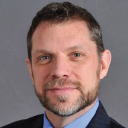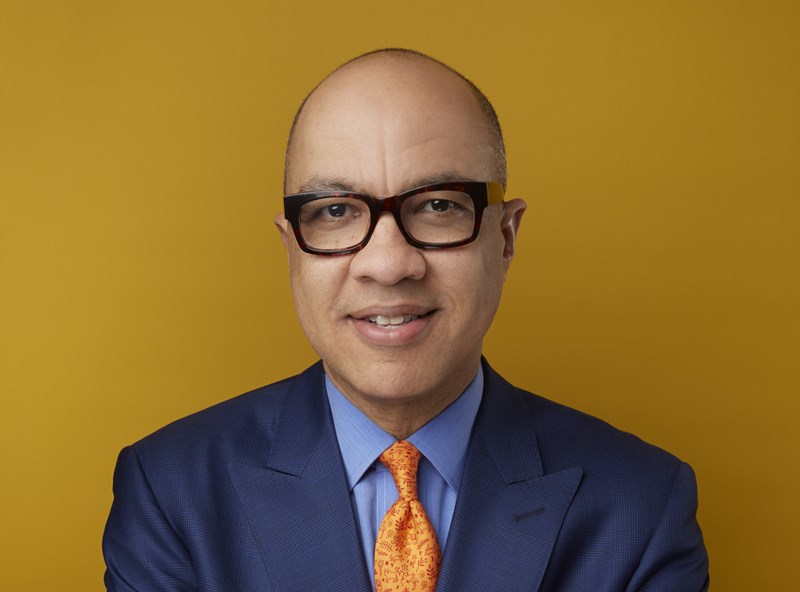John Harvey sat down with Darren Walker, president of the Ford Foundation, at the recent Global Philanthropy Forum, for a conversation on how he sees Ford moving forward under his leadership.
JH You’ve fairly recently taken on the leadership of one of the largest and most established foundations in the world. What do you see as the legacy of Ford that you are most committed to retaining, and where do you see Ford needing to move differently into the 21st century?
DW The Ford Foundation, for over seven decades, has been about three things: building institutions, investing in people, and investing in ideas. We will retain that. That is our DNA, because change happens when you have strong institutions and creative leaders and ideas that mobilize and galvanize society.
What is likely to change is how we work and how we are organized and structured to do the work and how our strategies are actually developed. We will, I think, listen more. We will be focused on the idea of institution-building, and what I mean by that is investing in the core work, the core enterprise, meaning more general support, more support beyond the grant, and longer-term commitments. Currently most of our grants are one to two years, and my goal is to have most of our grants be three to four years. So it’s a vision that is rooted in our history of social justice and social movements and supporting the voices of people who are closest to the problems we seek to solve.
At the end of the day, I like to say that we at the Ford Foundation are in the business of hope. Inequality steals hope away. Inequality robs hope, and at the centre of the narrative for change is the idea of hope and aspiration. So we want to invest in the hopes and aspirations and dreams of people in the United States and in the regions where we work.
JH When you talk about listening more, tease that out a bit more, because it can be extremely difficult for large organizations like your own to listen.
DW I think that in our efforts to become strategic, we have crowded out the voice of people who often bring authentic knowledge that we desperately need to improve our philanthropic practice. We have become almost theological and ideological about strategy, and that has in some ways been harmful to the very community who are essential to our success, the non-profit sector. That’s what I mean when I say that we need to be listening more.
JH Do you have a vision for what that process might look?
DW It is absolutely one of those design challenges that we have put before ourselves to be done this year. To do it by engaging in an organic way and by making room in our strategies for the organic nature of change, and being flexible to make mid-course corrections and not calcifying our strategies so that we can’t be adaptive as we go forward.
JH It’s always amazed me how foundations don’t often recognize that the people they work with are the ones with the most at stake. The work that foundations fund is about them, it’s not about us. So how we could not listen?
DW Absolutely.
JH In our sector we often hear philanthropy referred to as ‘risk capital’, when I think the reality of the sector is that it is often quite risk averse. What do you see in terms of Ford’s risk tolerance in the future?
DW I think that we have to have a tolerance for risk. For smart risk, for strategic risk, not wanton and irresponsible risk. What I mean by that is we have to manage a global portfolio of work and, as with any portfolio, you don’t want everything to be at the highest risk class of investment. On the other hand, you don’t always want to play it safe, because then you don’t get the returns that you want. So it’s always this balance, but given that we work on social change, and social justice today is such a contested idea, we have to invest in ideas that may seem marginal or unrealistic. My experience has been that often the most courageous visionaries are people who are deemed marginal and delusional and unrealistic.
JH Many Alliance readers are outside the US and are wondering what the future holds for Ford’s work in the global space.
DW When the modern Ford Foundation was founded in 1950, the charter for the foundation made it very clear that we would be a foundation engaged in global affairs and in helping to reduce poverty and inequality around the world. I am firmly committed to that objective and believe that, as a global philanthropy, there is no going back. Today, it is all about the global network of challenges; the problems and challenges of the world are globalized. It is no longer a world in which the US has a set of issues that are separate from Europe’s issues or Africa’s issues. The most important issues of the day are global issues, and they are climate change, inequality, the degradation of our environment as a result of extractive industries, political corruption, and money in politics. These are all global challenges, and as a global foundation we have to address them in all the places we work.
JH Some waves were recently made by an article calling on Ford to drastically cut its overhead, including by selling its main headquarters. How would you respond to this critique?
DW I would say that I think it’s unfortunate, because that critique assumes one template for philanthropy, and that is the foundation simply as cheque-writer, one seeking to simply dole out money from one office in one place. I think you should start with strategy and mission and vision. If your mission is to work internationally, inherently your cost structure will be more. If, as is the case with Ford, our objective is to work with people who are closest to the problems we’re trying to solve, that takes us to an operating model that is more staff intensive and requires more sunk costs, and I’m not apologetic about that, because that is consistent with our strategy and our mission. As for the building, it’s obviously paid for and the cost benefit of keeping it is very clear.
JH Since arriving at Ford, you’ve signalled a strong commitment to strategic talent management. Can you say a bit about your thinking on talent management at Ford moving forward?
DW I created the vice president-level role for HR and talent because I believe that talent, the human capital of our foundation, is our most precious asset. This position will report directly to the CEO, and we needed to invest in the professional development and success of our staff in order for them to be successful in working with our grantee partners and the people we serve. I believe that talent and the function of talent management isn’t something that should be buried down within the administration of the institution. It has to be at the top. It’s a leadership role, an incredibly important role. It’s strategic, and essential to the success of the organization.
JH I recently wrote a piece for Alliance on what makes a foundation great, and I named Ford as the foundation that scores highest. Have you seen the piece, and what’s your reaction to it?
DW Yes, I saw this piece, and I was really touched and honoured that you would call us out as your ideal foundation. I think it’s a very rigorous architecture.
JH Indeed it is. One criteria in particular I’d be interested in hearing your thoughts on is that of using all a foundation’s assets to achieve impact. Do you see Ford in the future striving to excel in this criterion?
DW Absolutely. I’m committed to our work beyond the grant, really leveraging all of the assets that we have at the foundation for impact. And so it is convening power and our ability to do programme related-investment. In fact I will be asking for an increase in our envelope for impact investing in the future. It is the global network, being able to connect people working on similar issues from different parts of the world to learn from each other, to improve our practice. It is our ability to collaborate as we did in Detroit, more effectively and more ambitiously.
JH Your work in Detroit was certainly outside the box for a foundation.
DW Sure, and I want to see Ford do more of that kind of work in the future.
Darren Walker is president of the Ford Foundation.
John Harvey is an independent global philanthropy professional.




Comments (0)